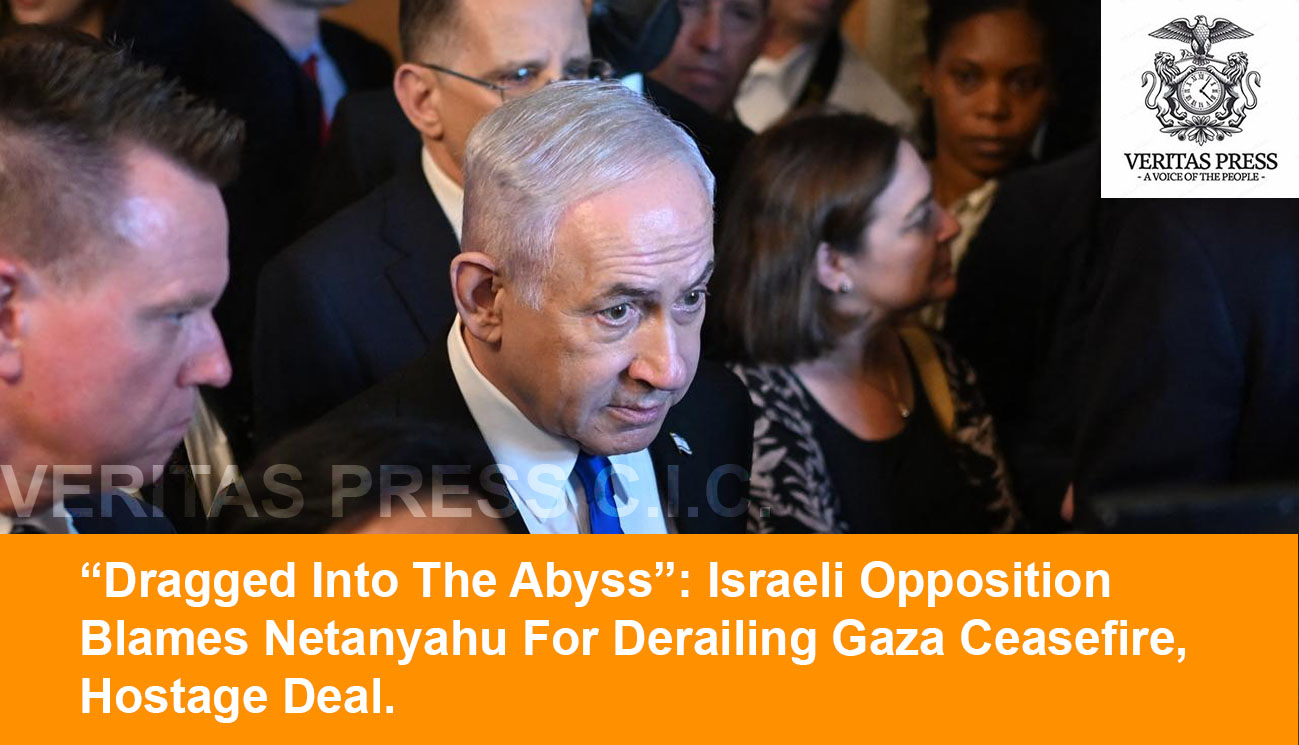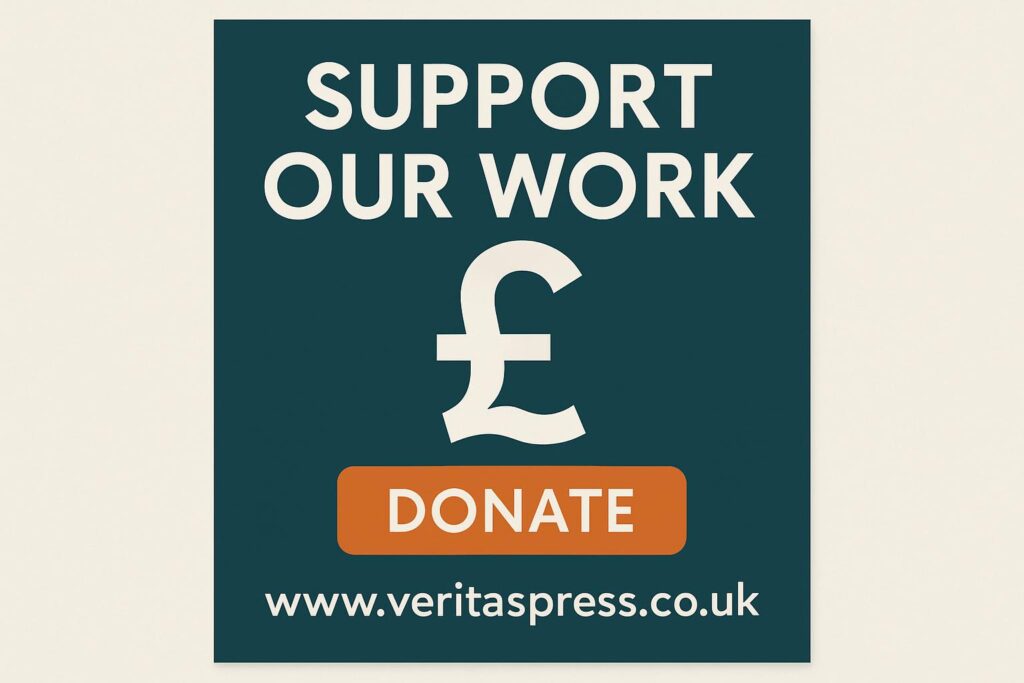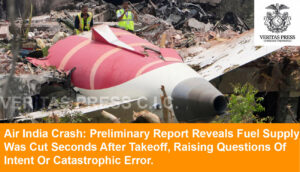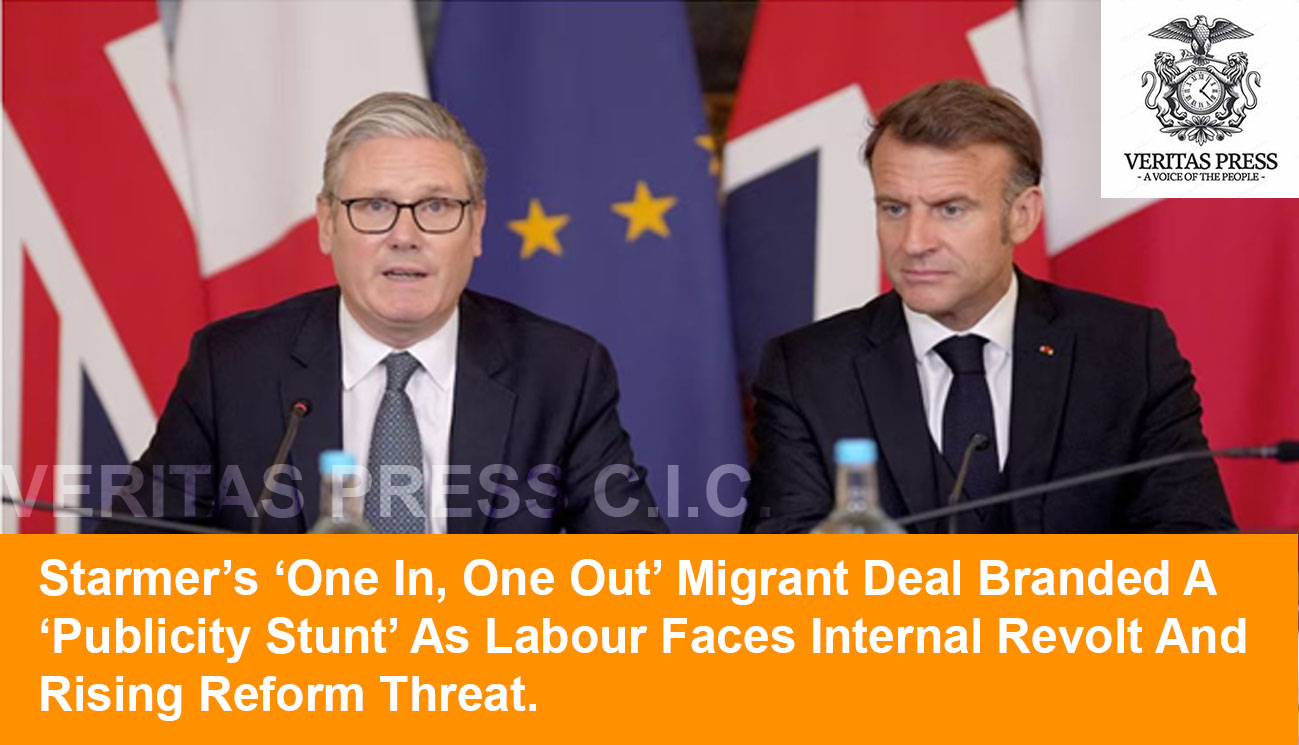
New York Times exposé, eyewitness accounts, and growing international outrage paint a picture of a government sacrificing lives for political survival.
Tel Aviv/Gaza — As the death toll in Gaza soars past 100,000, mounting pressure from within Israel and abroad is converging around one name: Benjamin Netanyahu.
This week, Yair Golan, leader of the Israeli Democratic Party and former IDF major general, accused the Israeli prime minister of sabotaging a ceasefire and hostage swap deal with Hamas to safeguard his right-wing coalition.
“The New York Times investigation only confirms what Israelis already whisper with increasing rage,” Golan said Saturday. “Netanyahu, Smotrich, and Ben-Gvir are clinging to power like a lifeline, while soldiers rot in tunnels and civilians die under rubble. This government is an existential threat to the nation it claims to protect.”
A Government At War With Itself:
Golan’s denunciation follows a damning report by The New York Times on Friday, which revealed that Netanyahu has repeatedly prioritised political stability over progress in hostage negotiations, rejecting viable proposals to maintain favour with extremist coalition partners, Finance Minister Bezalel Smotrich and National Security Minister Itamar Ben-Gvir.
The Times cited senior Israeli officials and foreign mediators who claimed that “Netanyahu has personally intervened to delay or dilute proposals that might lead to a deal with Hamas,” fearing that any compromise would trigger a coalition collapse and likely end his political career.
A former Mossad operative familiar with the talks told Haaretz under anonymity: “There were moments when we were this close to securing a release. And each time, someone high up, always from the Prime Minister’s Office, put a wrench in the works.”
Hostages Held Hostage By Politics:
The hostage crisis has become a political weapon. According to a June report by Hostages and Missing Families Forum, the families of over 60 Israelis still held in Gaza have grown “increasingly furious” over the government’s failure to prioritise their loved ones.
“They use our pain as leverage for their survival,” said Ayelet Meir, whose 19-year-old son Noam has been missing since the October 2023 Hamas raid on southern Israel. “Every week, they tell us a deal is close. Every week it collapses, because of Netanyahu and his puppets.”
On Wednesday, Hamas announced it was willing to release 10 living Israeli captives as a ‘confidence-building measure’, describing the offer as a demonstration of “flexibility” in ongoing Egypt- and Qatar-brokered ceasefire talks. The group’s statement was widely interpreted by analysts as a signal to the international community that Israel, not Hamas, was the obstacle.
Intransigence Over Withdrawal, Buffer Zones:
According to diplomats involved in negotiations, Israel has insisted on a 2-3 km-wide “buffer zone” in Rafah, and a continued military presence in northern Gaza, both conditions that Hamas and most mediators consider deal-breakers.
“This is not negotiation; this is occupation by another name,” said Dr. Mustafa Barghouti, secretary-general of the Palestinian National Initiative. “They are demanding permanent control over Gaza while pretending to talk peace.”
UN Middle East envoy Tor Wennesland told reporters Friday: “There is an urgent path to a ceasefire. But Israel’s insistence on territorial and military demands well beyond hostage recovery is preventing any breakthrough.”
Gaza’s Ruins: The Cost Of Political Calculations.
The consequences of Netanyahu’s strategy are visible in every corner of Gaza. Entire neighbourhoods in Khan Younis, Rafah, and Gaza City have been flattened. Nearly 70% of the population has been displaced, and outbreaks of cholera, hepatitis, and typhoid are spreading in makeshift tent camps.
According to the Gaza Health Ministry, more than 100,000 Palestinians, primarily women and children, have been killed in Israel’s relentless bombing campaign since October 2023. The figure continues to climb daily as airstrikes pound civilian areas under the pretext of targeting militants.
“Every morning, we dig bodies from the rubble. Every night we pray we’re not next,” said Abu Samir, a 46-year-old father sheltering near Deir al-Balah. “They say they are fighting Hamas. But it’s my children who are dying.”
International Justice: Warrants And Genocide Claims.
The International Criminal Court (ICC) last November issued arrest warrants for Netanyahu and former Defence Minister Yoav Gallant, citing credible evidence of war crimes and crimes against humanity in Gaza, including targeting civilians, starvation as a method of warfare, and obstruction of humanitarian aid.
Separately, the International Court of Justice (ICJ) is hearing a genocide case brought by South Africa, accusing Israel of intent to “destroy in whole or in part” the Palestinian population in Gaza. Emergency orders issued by the ICJ in January, May, and June 2025 have been widely ignored by Israel.
“We are witnessing the destruction of an entire society in real time,” said Francesca Albanese, the UN Special Rapporteur on the occupied Palestinian territories. “The legal and moral collapse of Israeli leadership is mirrored by the humanitarian collapse on the ground.”
Political Blowback Inside Israel:
While Netanyahu remains defiant, his grip is weakening. A recent poll conducted by Channel 13 News shows that 68% of Israelisbelieve the Prime Minister is mishandling the hostage crisis, and nearly 60% say they would support new elections if a viable deal is not reached by August.
“There’s a growing sense that Netanyahu is holding the nation hostage,” said Dr. Dahlia Scheindlin, a Tel Aviv-based political analyst. “His fear of losing power is now directly undermining Israel’s security, regional stability, and international standing.”
Golan’s call to “bring down the government” has been echoed by other opposition leaders, including Benny Gantz, who withdrew from Netanyahu’s war cabinet in June, citing “loss of trust” in the Prime Minister’s intentions.
Conclusion: Power Over Peace, Politics Over People.
Nine months into Israel’s scorched-earth campaign in Gaza, the public narrative of “national security” is unravelling. What remains is a harrowing portrait of political self-preservation masquerading as military strategy. Credible ceasefire proposals have been derailed, hostage release negotiations obstructed, and international legal warnings ignored, not due to strategic necessity, but to serve the survival of Prime Minister Benjamin Netanyahu and his far-right coalition.
The cost is catastrophic. Over 100,000 Palestinians, the majority women and children, have been killed, according to Gaza’s Health Ministry. Survivors are left starving and displaced, with hospitals bombed, disease rampant, and aid deliveries systematically sabotaged. Entire neighbourhoods have been razed to enforce buffer zones that analysts call “ethnic cleansing by artillery.” Meanwhile, the families of Israeli hostages languish in fear and despair, watching their government torpedo rescue deals for political leverage.
An investigation by The New York Times revealed what many in Israel already feared: that Netanyahu is intentionally blocking progress toward a ceasefire and prisoner swap to hold together his extremist cabinet, including Bezalel Smotrich and Itamar Ben-Gvir, ministers who openly reject any negotiation with Hamas and promote policies condemned by rights groups as settler-colonial and supremacist.
“Netanyahu, Smotrich and Ben-Gvir are dragging the entire country into the abyss,” said Israeli opposition leader Yair Golan. “They are once again derailing the deal.” His words echo growing protests inside Israel, where thousands have marched demanding the government’s fall, accusing Netanyahu of sacrificing lives to protect his own power.
But it’s not only diplomacy and peace being stifled, it’s dissent itself. Under Netanyahu’s leadership, freedom of speech has come under direct attack. Israeli and Palestinian journalists critical of the war have faced harassment, arrest, or bans. Digital surveillance has targeted activists and students, including through smear campaigns by pro-government proxies and shadowy online networks. “Troll armies linked to government allies are harassing anyone who speaks out,” said one Israeli academic whose home was vandalised after criticising the war. “It’s not just censorship, it’s intimidation.”
International human rights organisations, including Amnesty International and Human Rights Watch, have condemned this climate of repression, warning that the crackdown on free expression is part of a broader erosion of democratic norms in Israel under Netanyahu’s rule.
And while the Israeli government wages a war of attrition in Gaza, it wages another at home, against accountability, against civil society, and against the very idea that peace is possible.
As arrest warrants from the International Criminal Court loom and global calls for justice grow louder, the world must ask itself: How much longer can the international community afford to let one man’s political calculus dictate the fate of millions?
The war continues not because it must, but because Netanyahu needs it to. Until that political reality is dismantled, neither Israelis nor Palestinians will know peace, only ruin.



























